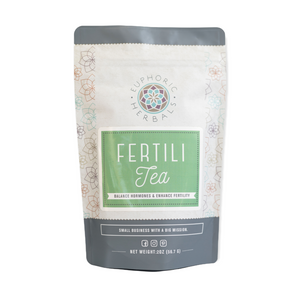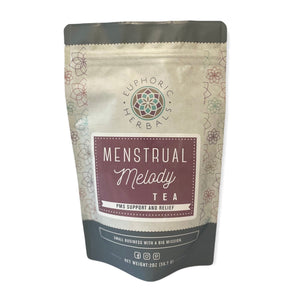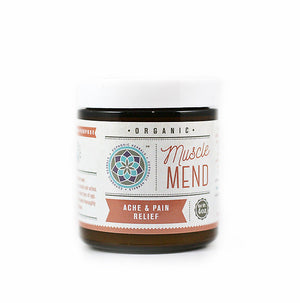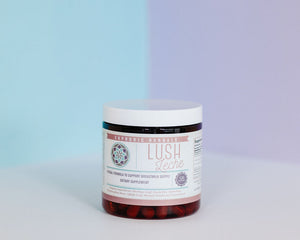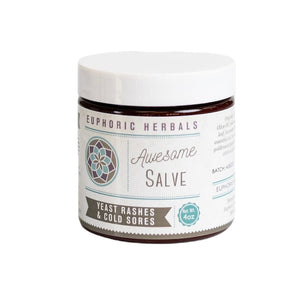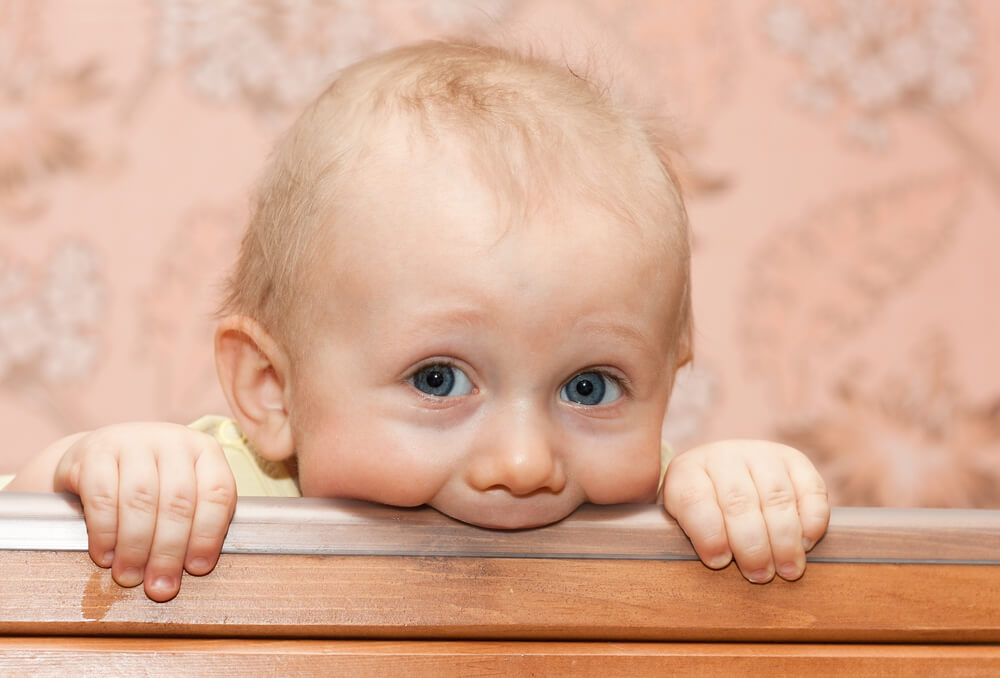Baby's first tooth is an exciting milestone. Even as you are encouraging smiles and trying to capture that once-in-a-lifetime photo, you're aware of a small voice of doubt.
Now that baby is getting teeth, are your days of breastfeeding at an end?
They do not have to be. In fact, the choice of when to wean your baby is largely a personal one, and it is possible that baby will not bite you while breastfeeding.
In fact, biting during breastfeeding isn't a foregone conclusion. Many moms continue breastfeeding through baby's first year, into the toddler years and beyond. The secret to being able to do so comfortably is to react appropriately and consistently whenever biting does occur.
Let's take a closer look at teething and breastfeeding.
How Do You Know that Baby Is Teething?
Usually between four and seven months of age, your baby will begin showing signs of teething. These may include:
- Gums that bulge or swell
- Irritability
- Trouble sleeping
- A low-grade fever
- Drooling
- A visible tooth below the gum line
Your baby may also grab his ears or rub his face to indicate the discomfort that is associated with teething. Because teething is an uncomfortable and painful process, it's likely that your baby will need extra soothing during this time. Up until this point, nursing has been an important source of comfort. This means that baby may seek your breast whenever she is made uncomfortable by teething.
How to Avoid Biting While Breastfeeding
For many moms, it is critical to help their babies find alternative sources of soothing when teething becomes painful. Baby will want to chew on something to relieve his sore gums, and it's best if he refrains from chewing on your nipple.
This is why it's critical to have a good supply of teething toys on hand. Teething toys help to numb the pain of teething and bring some much-needed comfort to an uncomfortable baby.
Which Teething Toys to Buy

Many choices are available when it comes to teething toys. Some of these contain a liquid, so placing these toys in the freezer or refrigerator makes them cold. When applied to baby's gums, the cold is a great source of numbing and relief from pain.
Moms also may choose solid rubber teething rings, but some prefer simply to chill a small metal spoon that can be placed against baby's gums. Other moms choose hard teething biscuits, which work well as long as they don't crumble before turning soft.
Avoid choosing any teething toys that are made of breakable materials or those that have parts that could break away, as these can become a choking hazard. Frequently, painted toys and jewelry contain harmful substances, and these should not be used as teething toys.
When Does It Make Sense to Stop Breastfeeding?
Often referred to as nature's perfect food, there is not a single "correct" time to stop breastfeeding. The American Academy of Pediatrics recommends that breastfeeding continue for at least the first year as long as the habit is "mutually desired by mother and child."
Typically, baby feeds by breastfeeding alone for about the first six months of life. Some moms may supplement with formula during this time, if necessary.
At around six months, baby will begin to explore other foods. Most babies naturally begin to nurse less as they start to consume solid foods on a regular basis.
The choice to wean is mainly yours and your child's. Some babies actually self-wean by displaying a disinclination to nurse. As long as they are receiving adequate nutrition from other sources, there is no reason not to discontinue breastfeeding.
However, if you and your child are still enjoying the breastfeeding experience, there's really no reason not to continue for as long as you like.
The onset of teeth doesn't have to turn breastfeeding into a routinely painful experience. When baby is properly latched to your breast, his tongue should be between your nipple and his bottom teeth. Generally, this is enough to prevent biting.
Nonetheless, biting may occur, but there are ways that you can discourage it.
What Should You Do If Baby Bites?

One moment, you're enjoying a peaceful nursing session. The next, you feel the painful bite of sharp little teeth. What should you do?
Your instinctive reaction may be to cry out or exclaim, but it's best to try to avoid this reaction. Some babies enjoy or are amused by a surprised exclamation from mom, and they may try to elicit it again.
Instead, if baby bites, calmly but firmly say, "No biting," and remove baby from your breast. Some moms even find it helpful to place baby on the floor for a few moments to emphasize the point that biting during breastfeeding isn't appropriate.
After taking a brief break, it's all right to continue breastfeeding. However, it's critical that you immediately stop if baby bites again. This may be the perfect time to end the nursing session, giving baby the message that biting during breastfeeding is unacceptable.
Most babies quickly learn that biting signaled that they were done feeding. This may prevent them from experimentally biting when they are hungry and would like to continue eating.
Preventing Bites During Breastfeeding
If you have had a couple of biting occurrences during nursing and would like to avoid them in the future, then it is wise to look for cues that signal baby is about to bite.
For instance, when baby is properly latched, she cannot bite you without biting herself because her tongue is between your nipple and her bottom teeth. If you notice that baby has moved her tongue, then it is probably time to remove her from your breast before she can bite.
It similarly is worthwhile to watch for baby falling asleep while nursing. Baby may try to bite while falling asleep in order to not lose his grasp on the nipple. If your baby is exhibiting a tendency toward biting as he falls asleep during nursing, take care to remove your breast before he falls asleep.
Some moms also mistake teething behavior for a need to nurse. If baby bites at the beginning of a breastfeeding session, this may be what is occurring. To test whether your baby needs a teething toy or a meal, put your finger in her mouth. A baby who sucks on your finger is hungry, but one that bites needs a teething toy.
How to Make Breastfeeding During Teething Easier
Use these tips to ensure a more comfortable nursing experience as your baby starts to teethe:
- Before beginning to nurse, let baby use a cold teething toy or a wet, cold washcloth to soothe gum irritation.
- Massage baby's gums with a finger before feeding.
- Ask your pediatrician about giving baby ibuprofen or acetaminophen to help manage pain.
- Do not use numbing medications on your baby's gums, as this may make it hard for baby to nurse.
Euphoric Herbals Is Here to Support You on Your Journey
Being a new mom is exciting, and there are so many new things to learn and discover. Of course, it can be a confusing and bewildering time as well, and that is why it is so critical to gather a circle of support around you.
Make Euphoric Herbals a part of your circle of support. We bring you all-natural, organic and healthy products that help you along your path through motherhood. From prenatal care to products that support breastfeeding and beyond, Euphoric Herbals is here to help you give your children the best possible start in life.






















































